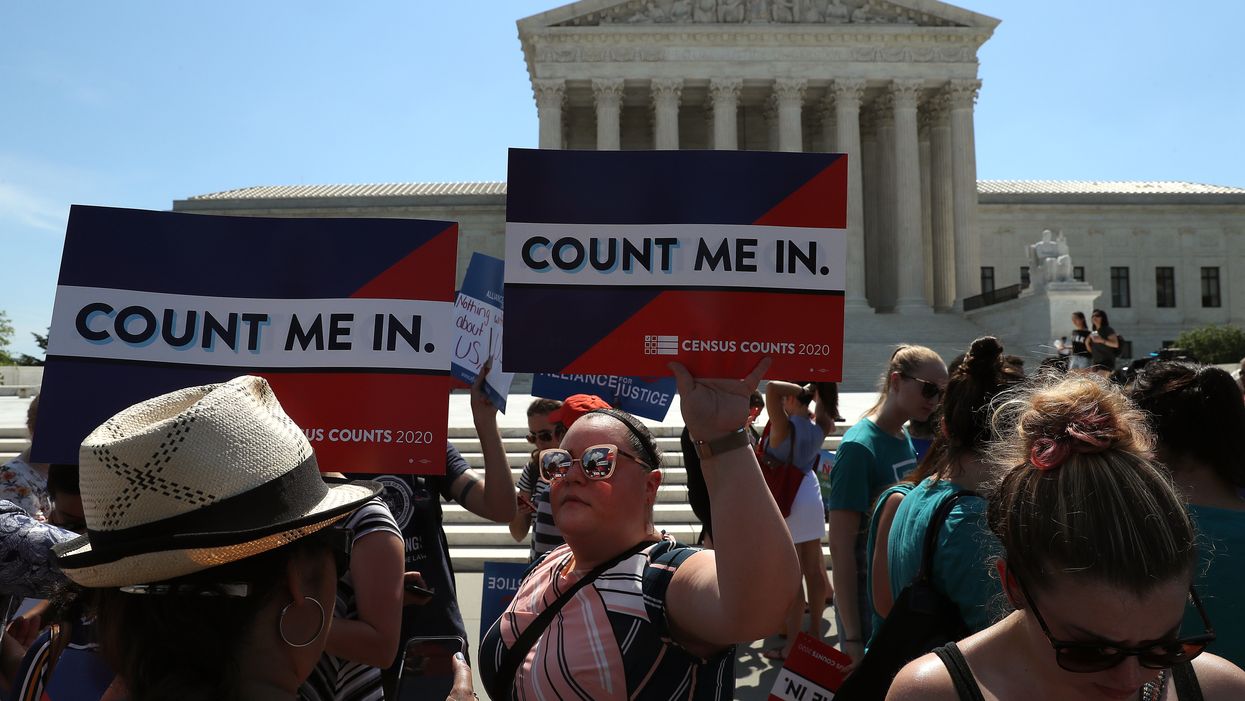Smith is the vice president for litigation and strategy at the Campaign Legal Center, a nonprofit focused on bolstering voting rights and curbing money's influence on politics.
President Trump's crusade to exclude undocumented immigrants from the census count is being put through one final test.
At a key inflection point that may offer a window into how the Supreme Court will evaluate politically charged cases after the arrival of its newest member, Justice Amy Coney Barrett, the court will hear the census case on Monday. It's extremely late in the game, as federal law requires the latest population counts for the allocation of congressional seats to be finalized by the end of December.
Chief Justice John Roberts knows how our continued faith in the Supreme Court depends on a collective belief that the court remains above the fray, not just another forum for partisan dispute. This case will be a test of that faith, because the president's order excluding undocumented immigrants from the census was both glaringly illegal and undertaken solely for political benefit.
The chief justice already ruled against the president once in a census case, last year, when Trump tried to add a citizenship question to the census. This time around, the question is similar: Can the president unilaterally exclude undocumented immigrants from state population counts that will be used to apportion seats in the House of Representatives?
Starting with the first census in 1790, the counts used for this apportionment function have always included all residents of the United States — citizens and non-citizens, regardless of immigration status. That is what the plain language of the Constitution calls for. There is no reason to change course now.
In addition to congressional apportionment, the case could have a direct impact on the outcome of future presidential elections. Since a state's number of Electoral College votes are determined in part by its seats in the House, excluding undocumented immigrants could reduce the voting power of Latinx communities — and other communities of color — in selecting presidents.
The president, however, has politicized the census in an unprecedented attempt to further marginalize communities that have struggled for political representation in the past.
On July 21, Trump announced that, "for the purpose of the reapportionment" after the census," the administration will "exclude from the apportionment base aliens who are not in a lawful immigration status." To implement this policy, the president directed Commerce Secretary Wilbur Ross, whose department includes the Census Bureau, to produce a second set of population data, separate from the results of the 2020 census, that would exclude undocumented immigrants.
The move is not only illegal but also extremely harmful. By law, the census must draw from the total population to ensure that the federal government is responsive and accountable to all people. This is to ensure it reflects population shifts in our diversifying country. The 14th Amendment requires that "representatives shall be apportioned among the several States according to their respective numbers, counting the whole number of persons in each State."
In the decision that is on appeal in this case, a federal district court in New York noted that federal law prohibits the president from relying on a second set of data, separate from the census, to reapportion Congress. A federal district court in California agreed, ruling Trump's attempt to exclude undocumented immigrants from the apportionment base violated the 14th Amendment.
Trump's plan not only ignores the Constitution, it also threatens to undercut central principles of our democracy. Elected officials do not simply represent the interests of those who voted for them. They represent all people in their districts. This includes children, noncitizens and individuals denied the right to vote due to state law. If left unchecked, the outgoing president's plan will unlawfully alter the composition of government and bend it towards his will.
This is a major test for the Supreme Court. It will be scrutinized to see whether it will stop the president's move to freeze out Americans by telling them they don't count.



















Trump & Hegseth gave Mark Kelly a huge 2028 gift